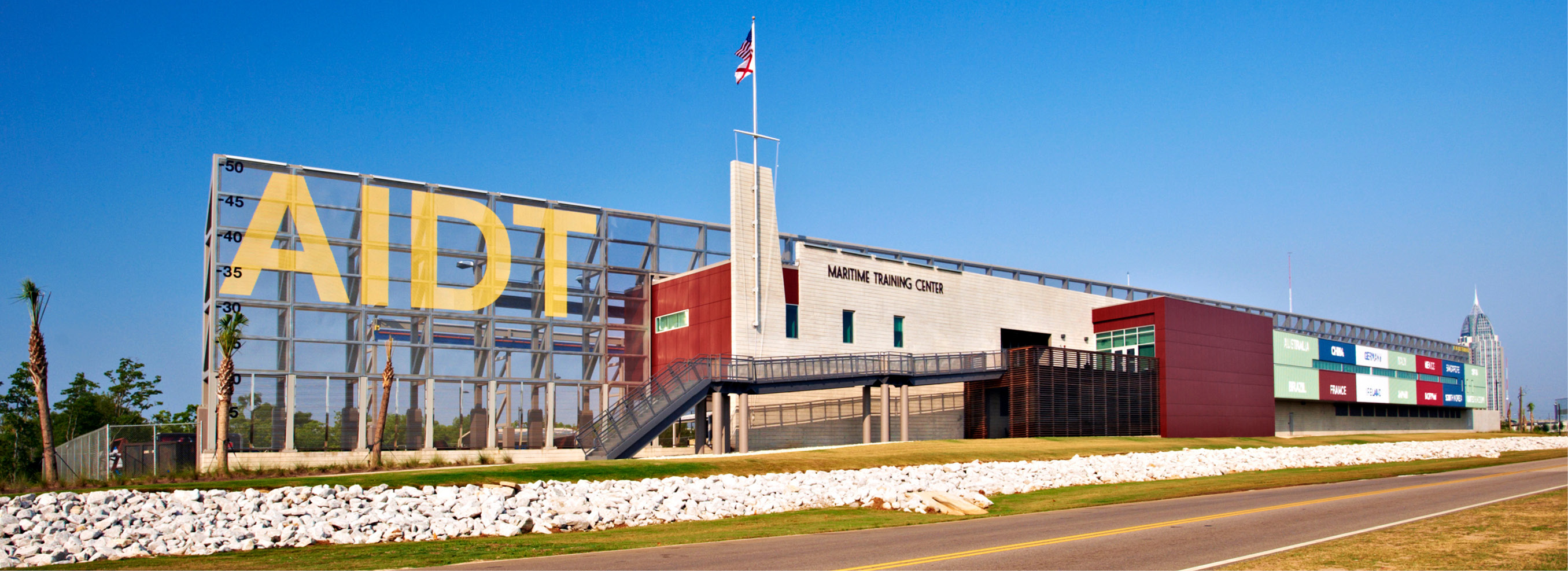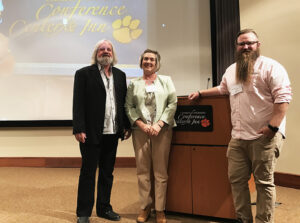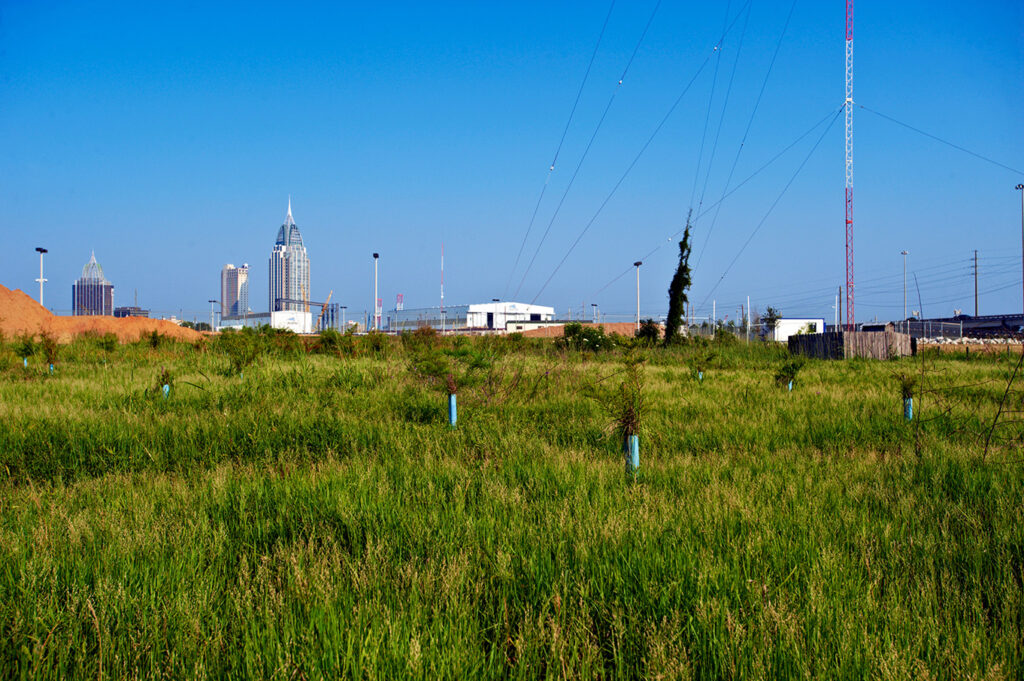GMC Environmental projects showcased at Clemson University
May 22, 2017 · Projects

Two of GMC’s environmental projects were highlighted recently at the Clemson University Hydrogeology Symposium hosted by the Department of Environmental Engineering and Earth Sciences.
GMC Environmental Manager Jymalyn Redmond presented the breakthrough remedial plan that resolved contamination issues at the Maritime Training Center in Mobile, Alabama, followed by site remediation contractor Barry Rudd of ExoTech, Inc., on the team’s unorthodox approach to sediment pond closure at an old textile plant in Hamilton, Alabama.

The Maritime Training Center Environmental Remediation Plan was developed after GMC discovered a serious contamination problem during geotechnical surveying of the site selected for the AIDT facility, which was being constructed to train workers in the ship building industry. The site was ideally located adjacent to a major ship builder just off Mobile Bay, with prime access of the interstate system and ship building industry. The delay in construction would have been detrimental to the project schedule, and significant cost overruns resulting from these environmental issues put development of the project in jeopardy. Rather than lose hope for the project, GMC’s team of environmental specialists developed a break-through remedial plan that not only resolved the environmental issues of the contaminated site, but also restored habitat and kept the project development on track.
The three-part remediation plan, approved by the Alabama Department of Environmental Management, included: 1) phytoremediation (the utilization of plants to cleanup environmental contaminants) with a Bald Cypress forest and fern plots, the first approach of its kind in the state of Alabama; 2) supplement traditional management of a capped parking lot and building structure; and 3) leaving eight acres of on-site wetland undisturbed. The remedial plan fulfilled the required functions and objectives of the cleanup and eliminated the potential for human exposure to hazardous substances during cleanup, minimized the potential for negative environmental impacts and reduced costs significantly through its self-sustaining approach.

Now several years later, the project has and will continue to improve the site’s environmental conditions. In 2014, GMC was recognized by the Partners for Environmental Progress Board of Directors with an Environmental Stewardship Award for the Maritime remediation project for its significant contribution to the Gulf Coast region with respect to economic growth, environmental health and social responsibility.
The presentation can be viewed in its entirety here.
Rudd’s presentation, “Utilizing Un-Orthodox Materials for Sediment Pond Closure at a Textile Plant,” focused on remediation of the former Munsingwear Plant site for the City of Hamilton. The project entailed demolition of a 187,000 square-foot building, stabilization and closure of two open ponds through sludge solidification and backfilling, proper disposal or recycling of building materials and grading and seeding of the site.